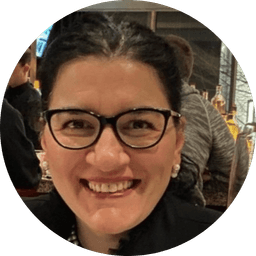The Nature of the Issue: Why Am I Here?
At the heart of our longing is a divine truth: you were created for union with God. The emptiness you sometimes feel isn’t evidence that you’re broken; it’s proof that you’re built for something eternal.
Biblically, this restlessness is echoed in Ecclesiastes 3:11 (NKJV):
“He has made everything beautiful in its time. Also, He has put eternity in their hearts...”
Psychologically, a lack of purpose is tied to increased anxiety, depression, and chronic stress. When we live out of alignment with our spiritual identity, our nervous system responds with confusion.
Neuroscience shows us that the prefrontal cortex, the seat of reflection and morality, thrives when we feel connected to something bigger than ourselves, something transcendent. Without purpose, the brain becomes overly reactive, triggering the limbic system, which governs fear and emotional volatility. Our bodies mirror our spiritual disconnection.
But here’s the sacred truth: what feels like confusion may actually be a calling, an invitation back to the center, back to the Garden, back to God.
Finding Your True Purpose: Theological and Scriptural Lens
Communion with God
From the first breath of Genesis to the final vision in Revelation, Scripture reveals one consistent truth: our purpose is communion with God. We are not merely saved from sin, but called into likeness with the divine life.
“Then God said, ‘Let Us make man in Our image, according to Our likeness.’” - Genesis 1:26 (NKJV)
“You shall be holy, for I am holy.” - 1 Peter 1:16 (NKJV) This is not metaphor - this is metamorphosis.
St. Athanasius wrote:
“God became man so that man might become god.”
This isn’t about becoming divine in essence, but becoming radiant in union. Theosis is the process of being transformed into the image of Christ, not only imitating Him, but participating in His life through grace.
Jesus Himself promised us this astonishing truth:
“Most assuredly, I say to you, he who believes in Me, the works that I do he will do also; and greater works than these he will do.” - John 14:12 (NKJV)
Jesus' words in John 14:12 are not merely a bold promise. They are a profound invitation to rediscover our divine calling. When Christ says, “He who believes in Me, the works that I do he will do also; and greater works than these he will do,” He reveals the astonishing truth that our lives are meant to be vessels of His ongoing ministry in the world. This isn’t about power or prestige; it’s about participation. We are called not to mimic Christ from a distance, but to embody His compassion, His healing, His truth, right where we are.
Whether we are teachers or janitors, caretakers or CEOs, our greatest purpose is not our position but our posture: one of love, humility, and service. Our truest potential is to become like Christ, not just in character, but in action, by the power of the Spirit at work in us. To live with purpose, then, is to pour ourselves out for others, just as He did - and in doing so, we are being transfigured into His likeness.
Get Closer to God Today
4.9
Average Rating
|Over 5 Million Downloads
6 Practical, Scripture-Based Steps to Discover Your Purpose
1. Return to the Vine
“I am the vine, you are the branches. He who abides in Me... bears much fruit.” - John 15:5
Purpose flows from abiding. Spend time daily in stillness, prayer, and the Word.
2. Ask Boldly in Prayer
“Call to Me, and I will answer you, and show you great and mighty things...” - Jeremiah 33:3
Ask God to reveal your next step. He is not silent - He is forming you.
3. Meditate on Identity Scriptures
Let these verses renew your mind:
- Psalm 139:14 – You are fearfully and wonderfully made.
- Ephesians 2:10 – You are His workmanship.
- 1 Peter 2:9 – You are a royal priesthood.
4. Let Your Gifts Serve Others
Purpose is not about having a prestigious career, but about using your natural gifts to serve the world. Whether you’re a janitor, a CEO, or a teacher, if your life blesses others and glorifies God, you are living your purpose.
“Let your light so shine before men, that they may see your good works and glorify your Father in heaven.” - Matthew 5:16
5. Reclaim Your Wounds
Christ’s own wounds were not erased after resurrection - they became radiant. Ask how your pain might become part of your purpose.
6. Say Yes to the Process
Purpose is not a destination; it is a journey of transformation.
“Here I am, send me.” - Isaiah 6:8
“Though our outer man is perishing, the inner man is being renewed day by day.” - 2 Corinthians 4:16
One-Minute Centering Prayer for Theosis and Life Purpose

Sit quietly.
Inhale: “Christ in me, the hope of glory.”
Exhale: “Form me into Your likeness, my true purpose.”
Repeat slowly for one minute, letting your breath draw you into stillness.
Rest in the awareness that your life is not random; it is a sacred journey of becoming.
You are being transformed, moment by moment, into the image of Christ, which is our ultimate purpose, regardless of our day-to-day jobs and occupations.
Theosis: Biblical Stories
1. The Transfiguration of Our Lord
“As He prayed, the appearance of His face was altered, and His robe became white and glistening.” - Luke 9:29 (NKJV)
At the Transfiguration, Christ revealed not only His glory, but ours. This was not merely a display of divinity, but a promise of what happens to all who abide in Him. In this sacred moment, the disciples glimpsed what theosis looks like: human nature illumined by divine presence. It is a reminder that our transformation is not theoretical - it is radiant, embodied, and real.
Throughout Scripture, we see that discovering one's purpose is rarely neat or predictable. God often calls people in moments of fear, weakness, or obscurity because it is in those very places that divine transformation begins. These stories don’t just illustrate calling; they embody the journey of theosis.
Theosis, from the Greek theo (God) and osis (process), is the journey of becoming more like God through grace. It is not about becoming divine in nature, but about participating in God's life: becoming radiant in love, mercy, truth, and compassion. Theosis happens through prayer, repentance, communion, Scripture, sacrificial love, and service to others. It is a lifelong process of being formed into the likeness of Christ from the inside out.
2. Moses and the Burning Bush
Moses spent 40 years tending sheep in Midian, likely believing his purpose was lost. But it was in his ordinary wilderness that God called him to lead a nation. In fear and uncertainty, he protested his inadequacy:
- “Who am I that I should go?” - Exodus 3:11
- But God promised His presence, not perfection:
- “I will be with you.” - Exodus 3:12
The encounter with the burning bush was more than a mission; it was a moment of holy communion. Moses’s face would later shine with God’s glory, symbolizing a man being changed by divine presence. This is theosis: to be transformed not by what we do, but by who we are becoming in the presence of God.
3. Jeremiah the Reluctant Prophet
Jeremiah was young, insecure, and overwhelmed by the weight of divine calling. He doubted his voice, his wisdom, and his worth.
“Ah, Lord God! Behold, I cannot speak, for I am a youth.” - Jeremiah 1:6
But God did not wait for confidence - He gave Jeremiah His words and His strength.
“Do not say, ‘I am a youth,’ for you shall go to all to whom I send you.” - Jeremiah 1:7
Jeremiah’s story reminds us that calling is not about our qualifications, but about our willingness to trust and respond. In yielding to God’s voice, Jeremiah was shaped into a courageous prophet, even in pain. Theosis often unfolds through faithful endurance.
4. Mary the Theotokos
Mary was a young, unknown girl in Nazareth. Yet heaven found her. When the angel announced God’s plan, she asked:
“How can this be?” - Luke 1:34
But then she surrendered:
“Be it unto me according to Your word.” - Luke 1:38
Her response became the doorway to salvation. Mary became the Theotokos (God-bearer) not because she planned it, but because she was open. Her entire being was a dwelling place for Christ. In her, we see the fullness of theosis: the human heart becoming a home for God.
These stories show us that God doesn’t wait for perfection. He meets us in our hesitation, heals our identity, and calls us to walk in courage. And through the ongoing process of theosis - prayer, trust, humility, and obedience - we too are transformed from glory to glory.
Theosis Effects on the Embodied and Emotional Dimensions
Living without a clear purpose doesn’t just cause mental anguish; it affects the body. Symptoms may include:
- chronic fatigue
- lack of motivation
- overthinking
- body tension
- digestive issues
- undercurrent of sadness
Epigenetically, we may carry inherited burdens of unworthiness, shame, or “not enoughness” from previous generations.
But when we return to God’s presence, something shifts in the nervous system. The parasympathetic system (rest and restore) is activated. In short, peace returns. This is why the Psalmist says:
“Be still, and know that I am God.” - Psalm 46:10 (NKJV)
Theosis is not just spiritual theory. It is embodied healing, a return to love in the brain, the breath, and the bones.
Get Closer to God Today
4.9
Average Rating
|Over 5 Million Downloads
Barriers to Theosis and Finding our True Purpose
Many people never begin the journey of theosis, not because they lack desire, but because they feel disqualified. Shame, perfectionism, distraction, comparison, and fear of unworthiness can cloud the soul and silence the Spirit.
But the journey begins precisely there, in weakness, in confusion, in longing. The only thing God needs from you is your yes.
“My grace is sufficient for you, for My strength is made perfect in weakness.” - 2 Corinthians 12:9 (NKJV)
Theosis is not achieved through striving; it is received through:
- Surrender
- Trust
- Divine participation
Holy Purpose vs. False Purpose
True purpose is rooted in becoming, not achieving. But in a world obsessed with performance, we may confuse busyness with purpose.
Holy Purpose:
- Draws you into deeper communion with God
- Leads to peace, humility, and generosity
- Grows slowly and patiently
- Is rooted in service
False Purpose:
- Is driven by ego or comparison
- Leads to burnout, pride, or shame
- Demands immediate validation
- Is self-glorifying
“The greatest among you shall be your servant.” - Matthew 23:11 (NKJV)
Red Flags: When Purpose Gets Distorted
You may be drifting from your true purpose if:
- You chase success but still feel empty
- You feel disconnected from your gifts or calling
- You avoid silence or solitude
- You feel defined by failure, shame, or comparison
- You fear your life won’t “amount to anything”
“My people are destroyed for lack of knowledge.” - Hosea 4:6 (NKJV)
How Bible Chat Helps You Find Your Purpose
If you’re struggling to hear God's voice or wondering what your purpose is, you’re not alone. Bible Chat can help guide you gently through Scripture and prayer. It’s always available, grounded in God’s Word, and can help you explore calling, identity, and the voice of the Shepherd, especially when clarity feels out of reach.
Many people use Bible Chat to:
- Reflect on Scripture in real time
- Ask questions about identity and the Christian life
- Pray through doubt and confusion
- Discover passages that speak directly to their heart
Whether it's 3 p.m. or 3 a.m., you are never alone. God is always speaking, and sometimes, we just need help listening.
Communal Purpose: Becoming One in Christ
Theosis is never a solitary pursuit. As we are transformed, we become vessels of love for others. Your healing, your growth, your joy - it becomes a gift to the Body of Christ. We were made for union, not just with God, but with one another.
“That they all may be one, as You, Father, are in Me, and I in You; that they also may be one in Us…” - John 17:21 (NKJV)
Every act of service, every offering of kindness, every forgiveness extended - it builds the Kingdom. Your purpose is not just to shine alone, but to become part of the divine symphony.
“Now you are the body of Christ, and members individually.” - 1 Corinthians 12:27 (NKJV)
Closing Prayer
Lord Jesus,
You are the Way, the Truth, and the Life.
You have knit us together with purpose, calling us to become partakers of Your divine nature.
Silence the noise of the world and our own fears, and help us hear Your voice more clearly.
Restore what is lost, heal what is broken, and guide us back to the reason we were made: union with You.
May we walk this path with courage, trust, and joy.
Amen.
References
- The Holy Bible, New King James Version (NKJV), Thomas Nelson
- The Holy Bible, Revised Standard Version, Catholic Edition (RSVCE), Ignatius Press
- St. Athanasius, On the Incarnation
- St. John of Kronstadt, My Life in Christ
- Harvard Health: Understanding the Stress Response - https://www.health.harvard.edu/staying-healthy/understanding-the-stress-response
- NIH: Epigenetic Transmission of Stress Responses - https://www.ncbi.nlm.nih.gov/pmc/articles/PMC6220625/










